Clergy Quotes
Quotes tagged as "clergy"
Showing 1-30 of 49

“When the clergy addressed General Washington on his departure from the government, it was observed in their consultation that he had never on any occasion said a word to the public which showed a belief in the Christian religion and they thought they should so pen their address as to force him at length to declare publicly whether he was a Christian or not. They did so. However [Dr. Rush] observed the old fox was too cunning for them. He answered every article of their address particularly except that, which he passed over without notice... I know that Gouverneur Morris, who pretended to be in his secrets & believed himself to be so, has often told me that General Washington believed no more of that system than he himself did.
{The Anas, February 1, 1800, written shortly after the death of first US president George Washington}”
― The Complete Anas of Thomas Jefferson
{The Anas, February 1, 1800, written shortly after the death of first US president George Washington}”
― The Complete Anas of Thomas Jefferson

“My 'morals' were sound, even a bit puritanic, but when a hidebound old deacon inveighed against dancing I rebelled. By the time of graduation I was still a 'believer' in orthodox religion, but had strong questions which were encouraged at Harvard. In Germany I became a freethinker and when I came to teach at an orthodox Methodist Negro school I was soon regarded with suspicion, especially when I refused to lead the students in public prayer. When I became head of a department at Atlanta, the engagement was held up because again I balked at leading in prayer. I refused to teach Sunday school. When Archdeacon Henry Phillips, my last rector, died, I flatly refused again to join any church or sign any church creed. From my 30th year on I have increasingly regarded the church as an institution which defended such evils as slavery, color caste, exploitation of labor and war. I think the greatest gift of the Soviet Union to modern civilization was the dethronement of the clergy and the refusal to let religion be taught in the public schools.”
― The Autobiography of W.E.B. Du Bois: A Soliloquy on Viewing My Life from the Last Decade of Its First Century
― The Autobiography of W.E.B. Du Bois: A Soliloquy on Viewing My Life from the Last Decade of Its First Century
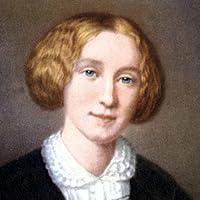
“The clergy are, practically, the most irresponsible of all talkers.
["Evangelical Teaching: Dr. Cumming," The Westminster Review, 1885.]”
―
["Evangelical Teaching: Dr. Cumming," The Westminster Review, 1885.]”
―

“There exists indeed an opposition to it [building of UVA, Jefferson's secular college] by the friends of William and Mary, which is not strong. The most restive is that of the priests of the different religious sects, who dread the advance of science as witches do the approach of day-light; and scowl on it the fatal harbinger announcing the subversion of the duperies on which they live. In this the Presbyterian clergy take the lead. The tocsin is sounded in all their pulpits, and the first alarm denounced is against the particular creed of Doctr. Cooper; and as impudently denounced as if they really knew what it is.
[Letter to José Francesco Corrê a Da Serra - Monticello, April 11, 1820]”
― Letters of Thomas Jefferson
[Letter to José Francesco Corrê a Da Serra - Monticello, April 11, 1820]”
― Letters of Thomas Jefferson

“The world does not consist of 100 percent Christians and 100 percent non-Christians. There are people (a great many of them) who are slowly ceasing to be Christians but who still call themselves by that name: some of them are clergymen. There are other people who are slowly becoming Christians though they do not yet call themselves so. ”
― Mere Christianity
― Mere Christianity
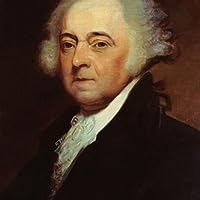
“...Turn our thoughts, in the next place, to the characters of learned men. The priesthood have, in all ancient nations, nearly monopolized learning. Read over again all the accounts we have of Hindoos, Chaldeans, Persians, Greeks, Romans, Celts, Teutons, we shall find that priests had all the knowledge, and really governed all mankind. Examine Mahometanism, trace Christianity from its first promulgation; knowledge has been almost exclusively confined to the clergy. And, even since the Reformation, when or where has existed a Protestant or dissenting sect who would tolerate a free inquiry? The blackest billingsgate, the most ungentlemanly insolence, the most yahooish brutality is patiently endured, countenanced, propagated, and applauded. But touch a solemn truth in collision with a dogma of a sect, though capable of the clearest proof, and you will soon find you have disturbed a nest, and the hornets will swarm about your legs and hands, and fly into your face and eyes.
[Letters to John Taylor, 1814, XVIII, p. 484]”
― The Letters of John and Abigail Adams
[Letters to John Taylor, 1814, XVIII, p. 484]”
― The Letters of John and Abigail Adams

“If the people of Europe had known as much of astronomy and geology when the bible was introduced among them, as they do now, there never could have been one believer in the doctrine of inspiration. If the writers of the various parts of the bible had known as much about the sciences as is now known by every intelligent man, the book never could have been written. It was produced by ignorance, and has been believed and defended by its author. It has lost power in the proportion that man has gained knowledge. A few years ago, this book was appealed to in the settlement of all scientific questions; but now, even the clergy confess that in such matters, it has ceased to speak with the voice of authority. For the establishment of facts, the word of man is now considered far better than the word of God. In the world of science, Jehovah was superseded by Copernicus, Galileo, and Kepler. All that God told Moses, admitting the entire account to be true, is dust and ashes compared to the discoveries of Descartes, Laplace, and Humboldt. In matters of fact, the bible has ceased to be regarded as a standard. Science has succeeded in breaking the chains of theology. A few years ago, Science endeavored to show that it was not inconsistent with the bible. The tables have been turned, and now, Religion is endeavoring to prove that the bible is not inconsistent with Science. The standard has been changed.”
― Some Mistakes of Moses
― Some Mistakes of Moses

“That's the trouble with you preachers," he said. "You've all got too good to believe in anything," and he drove off with a look of disgust and righteousness.”
― Wise Blood
― Wise Blood

“If you cannot see that divinity includes male and female characteristics and at the same time transcends them, you have bad consequences. Rome and Cardinal O'Connor base the exclusion of women priests on the idea that God is the Father and Jesus is His Son, there were only male disciples, etc. They are defending a patriarchal Church with a patriarchal God. We must fight the patriarchal misunderstanding of God.”
―
―

“During almost fifteen centuries has the legal establishment of Christianity been on trial. What have been its fruits? More or less in all places, pride and indolence in the Clergy, ignorance and servility in the laity, in both, superstition, bigotry and persecution.”
― A Memorial And Remonstrance, On The Religious Rights Of Man: Written In 1784-85
― A Memorial And Remonstrance, On The Religious Rights Of Man: Written In 1784-85
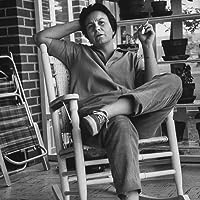
“Again, as I had often met it in my own church, I was confronted with the Impurity of Women doctrine that seemed to preoccupy all clergymen.”
― To Kill a Mockingbird
― To Kill a Mockingbird

“The Pope would have an easier job than the President of the United States in adopting a change of course. He has no Congress alongside him as a legislative body nor a Supreme Court as a judiciary. He is absolute head of government, legislator and supreme judge in the church. If he wanted to, he could authorize contraception over night, permit the marriage of priests, make possible the ordination of women and allow eucharistic fellowship with this Protestant churches. What would a Pope do who acted in the spirit of Obama?”
―
―

“A clergyman generally dislikes being met in argument by any scriptural quotation; he feels as affronted as a doctor does, when recommended by an old woman to take some favourite dose.”
― The Warden
― The Warden

“His faith wavered, but not his speech: it is the lot of every man who has to speak for the satisfaction of the crowd, that he must often speak in virtue of yesterday's faith, hoping it will come back to-morrow.”
― Romola
― Romola
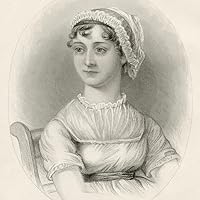
“A clergyman has nothing to do but be slovenly and selfish—read the newspaper, watch the weather, and quarrel with his wife. His curate does all the work, and the business of his own life is to dine.”
“There are such clergymen, no doubt, but I think they are not so common as to justify Miss Crawford in esteeming it their general character. I suspect that in this comprehensive and (may I say) commonplace censure, you are not judging from yourself, but from prejudiced persons, whose opinions you have been in the habit of hearing. It is impossible that your own observation can have given you much knowledge of the clergy. You can have been personally acquainted with very few of a set of men you condemn so conclusively. You are speaking what you have been told at your uncle’s table.”
“I speak what appears to me the general opinion; and where an opinion is general, it is usually correct. Though I have not seen much of the domestic lives of clergymen, it is seen by too many to leave any deficiency of information.”
― Mansfield Park
“There are such clergymen, no doubt, but I think they are not so common as to justify Miss Crawford in esteeming it their general character. I suspect that in this comprehensive and (may I say) commonplace censure, you are not judging from yourself, but from prejudiced persons, whose opinions you have been in the habit of hearing. It is impossible that your own observation can have given you much knowledge of the clergy. You can have been personally acquainted with very few of a set of men you condemn so conclusively. You are speaking what you have been told at your uncle’s table.”
“I speak what appears to me the general opinion; and where an opinion is general, it is usually correct. Though I have not seen much of the domestic lives of clergymen, it is seen by too many to leave any deficiency of information.”
― Mansfield Park

“If you want progress, take up running. If you want meaning, run a church.”
― No Cure for Being Human: And Other Truths I Need to Hear
― No Cure for Being Human: And Other Truths I Need to Hear

“But of course, when they ask for a "lead from the church," most people mean they want the clergy to put out a political program. That is silly. The clergy are those particular people within the whole church who have been specially trained and set aside to look after what concerns us as creatures who are going to live forever. And we are asking them to do a quite different job, for which they have not been trained. The job is really on us- on the laymen.”
― Mere Christianity
― Mere Christianity

“There is, perhaps, no greater hardship at present inflicted on mankind in civilized and free countries than the necessity of listening to sermons.”
― Barchester Towers
― Barchester Towers
“The typical clergy/laity system practiced among most churches is detrimental to believers. In this system only a professional class of people teaches and preaches, while the majority of the believers listen.”
― ONE: Unfolding God's Eternal Purpose from House to House
― ONE: Unfolding God's Eternal Purpose from House to House
“Most believers learn passively from clergy. However, no matter how good and uplifting this person's teaching, as long as the members are not actively ministering and speaking Christ themselves, growth lacks.”
― ONE: Unfolding God's Eternal Purpose from House to House
― ONE: Unfolding God's Eternal Purpose from House to House
“Those members who are more gifted have a job: to equip and encourage the less gifted believers to do the work of building up. Today's system of clergy and laity, where a few believers do all the teaching and preaching but the majority stay passive year after years has not (and does not) equip believers to do what the clergies are doing; therefore they cannot build up the body of Christ. What should happen is that after receiving the equipping from the more gifted ministers, all of those saints would go and preach the gospel, teach the truth, and meet in fellowship with all other believers themselves. This would directly build up the body of Christ.”
― ONE: Unfolding God's Eternal Purpose from House to House
― ONE: Unfolding God's Eternal Purpose from House to House

“Week after week, I was permitted to stand up in special clothes and talk while everyone else sat quietly and listened. Week after week, they heard the gospel filtered through my sensibilities. On Sunday mornings they sang the hymns I had chosen, and on Wednesday evenings they engaged the topics I had picked.”
― Leaving Church: A Memoir of Faith
― Leaving Church: A Memoir of Faith
“In love or pain, in joy and sadness, in loss and achievement, a Traveller along the Entertainment Leys joining these domains, these zones and points of sympathy, will therefore never ever be alone. Rod Stewart's cousin might be near, or Elton John's grandfather might have died just up the road. Be it suffering or transcendent joy, an Entertainment Traveller is held in an intercontinental web of healing glory which doesn't cost a penny, and has absolutely no concern for your previous moral life. Entertainment Priests are not deeply troubled men in nightshirts, most of whom have so many psychological problems before breakfast their personal depression nearly kills them promoting the comedown, the comeback, the punishment, the price to be paid at the toll gates of both sides of the schism. If the new Entertainment Priests are not fun, there is an absolute lock on their spiritual progress. They have to be Entertainers first and foremost, and they are to cast out of the temple the depressing landscape of fear and guilt and horrorof the Old Analogue Age, which was the pre-Entertainment Time. As Entertainment Citizens we will come to see that this past was a bleak landscape in which everything was poisoned, gassed, and strangled. It was a psychopath's world of tortured animals and old iron of industrial and scientific determinism. Now, like a billion-ton ice-pack, this spiritual hell is beginning a perceptible shift of paradigm into a landscape of purest Entertainment Legend.”
― The entertainment bomb
― The entertainment bomb

“I don’t trust most members of the clergy. Not because they’re clergy. Because they’re people.”
― The Priest
― The Priest

“Let us not, however, have temples from which issue
beautiful nude priests and priestesses already half in ecstasy and ready to copulate with any man or woman, lover or stranger who desires union with the deep godhead of the blood, although that was my first idea. But really it would be better not to have any temples in Omelas – at least, not manned temples. Religion yes, clergy no. Surely the beautiful nudes can just wander about, offering themselves like divine soufflés to the hunger of the needy and the rapture of the flesh.”
― The Ones Who Walk Away from Omelas
beautiful nude priests and priestesses already half in ecstasy and ready to copulate with any man or woman, lover or stranger who desires union with the deep godhead of the blood, although that was my first idea. But really it would be better not to have any temples in Omelas – at least, not manned temples. Religion yes, clergy no. Surely the beautiful nudes can just wander about, offering themselves like divine soufflés to the hunger of the needy and the rapture of the flesh.”
― The Ones Who Walk Away from Omelas
“I have such sympathy for the forerunners of science in religious circles. This especially true for clergy. Those that pursue both scientific methodology and fervent spiritual pursuit, are inevitably mocked by both sides. No one gives them a fair and unbiased assessment.”
―
―
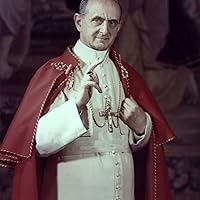
“The causes of the decrease in vocations to the priesthood are the be found in the fact that individuals and families have lost their sense of God and of all that is holy, their esteem for the Church as the institution of salvation through faith and the sacraments. The problem must be examined at its real source.”
― Sacerdotalis Caelibatus
― Sacerdotalis Caelibatus

“He was to tell André Malraux later: “Clemeneau used to say: ‘War is a much too serious business to be left to the military.’ And look what happened to Communism when the Communists got hold of it or to the Catholic Church in the hands of the clergy. We are rapidly approaching a point when it will no longer be possible to trust scientists with science.”
― The Gasp
― The Gasp
“To one male seminarian, who complained that all the talk about discrimination dominated too much class time, Murray responded, 'If you have to live with anger, I have to live with pain. I'lI trade you both my pain, my sex, my race and my age--and see how you deport yourself in such circumstances. Barring that, try to imagine for 24 hours what it must be like to be a Negro in a predominantly white seminary, a woman in an institution dominated by men and for the convenience of men, some of whom radiate hostility even though they do not say a word, who are patronizing and kindly as long as I do not get out of my place, but who feel threatened by my intellect, my achievements, and my refusal to be suppressed.' Of their differences, Murray told him, 'If I can't take your judgmental statements and your anger, I am in the wrong place. If you cannot take my methods of fighting for survival, then you have chosen the wrong vocation.”
― The Firebrand and the First Lady: Portrait of a Friendship: Pauli Murray, Eleanor Roosevelt, and the Struggle for Social Justice
― The Firebrand and the First Lady: Portrait of a Friendship: Pauli Murray, Eleanor Roosevelt, and the Struggle for Social Justice
All Quotes
|
My Quotes
|
Add A Quote
Browse By Tag
- Love Quotes 97k
- Life Quotes 75.5k
- Inspirational Quotes 72.5k
- Humor Quotes 43.5k
- Philosophy Quotes 29.5k
- Inspirational Quotes Quotes 27k
- God Quotes 26k
- Truth Quotes 23.5k
- Wisdom Quotes 23.5k
- Romance Quotes 23k
- Poetry Quotes 22k
- Death Quotes 20k
- Happiness Quotes 18.5k
- Life Lessons Quotes 18.5k
- Hope Quotes 18k
- Faith Quotes 18k
- Quotes Quotes 16.5k
- Inspiration Quotes 16.5k
- Spirituality Quotes 15k
- Religion Quotes 15k
- Motivational Quotes 15k
- Writing Quotes 14.5k
- Relationships Quotes 14.5k
- Life Quotes Quotes 14k
- Love Quotes Quotes 13.5k
- Success Quotes 13.5k
- Time Quotes 12.5k
- Motivation Quotes 12k
- Science Quotes 11.5k
- Knowledge Quotes 11k


